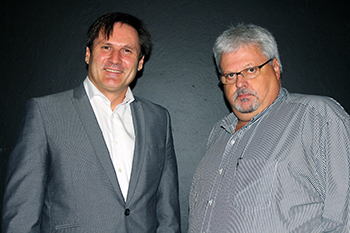Latest News Archive
Please select Category, Year, and then Month to display items
02 January 2018
Photo Destudio Architects and Urban planners
 Architectural illustration of the planned Science Park on the university’s Bloemfontein Campus.
Architectural illustration of the planned Science Park on the university’s Bloemfontein Campus.
Situated next to the Winkie Direko Building on the University of the Free State’s Bloemfontein Campus, an exciting development in the form of a Science Park is on the horizon for the Faculty of Education.
This future development will comprise an outdoor Science Garden and an indoor Science Discovery Centre. It will be characterised by interactive educational displays and exhibitions and will feature an ICT Laboratory, amphitheatre, Family Math and Family Science training facilities, as well as a “planetarium dome simulator”.
The Science Park is in line with the university’s commitment to advance teaching and learning with regard to mathematics and science.
“Since the Science-for-the-Future (S4F) unit from the Faculty of Education focuses on the development of innovative teaching and learning programmes, the envisaged Science Park will support and complement current and future engaged learning initiatives. The Science Park will be a customised teaching and learning environment that embraces and promotes the most effective ways of teaching science, mathematics and technology, through hands-on, interactive, experiential and student-driven educational methods. This will provide opportunities for student teachers from the Faculty of Education, as well as teachers who receive in-service training at the UFS, to enhance the scope of their maths and science pedagogical content knowledge,” said Dr Cobus van Breda, Programme Director of the Science-for-the-Future (S4F) unit in the Faculty of Education.
The Science Park will also serve as a social space on campus where all students can interact within a fun and exciting popular science environment. “We see this as a creative approach to the use of spaces on campus to create an aesthetic and educational added value,” said Prof Loyiso Jita, Dean of the Faculty of Education.
In future, the Science Park, along with the existing synergy between the science and mathematics training programmes based at the Faculty of Education, the Naval Hill Planetarium and the Boyden Observatory, will provide a rich and unique opportunity to experience real-life science as well as content in context; all contributing factors to effective teaching and learning.
The Science Park project is estimated to be completed by the end 2019.
Internationally-renowned futurist proposes innovation in corporate management
2016-05-10

Pieter Geldenhuys, guest speaker at the seminar, who mapped the future of corporate management (left) with Dr Vic Coetzee, Senior Director: Information and Communication Technology Services at the UFS (right).
Photo: Hatsu Mphatsoe
|
Humans need to adapt their thinking to the world’s changes. This is Pieter Geldenhuys’s conviction.
The Information and Communication Technology Services (ICT) at the University of the Free State hosted a seminar on 22 April 2016 at the Bloemfontein Campus. Geldenhuys, the Director of the Institute for Technology Strategy and Innovation at North-West University and internationally-renowned futurist, presented his views on technology, innovation, and corporate management on this occasion.
Geldenhuys, a well- known speaker, academic, and futurist, is in the business of identifying opportunities in the changing technological and social landscape with the aim of assisting companies to prepare for the future, while being an active agent in defining it. Lately, he has been exploring the concept of a new kind of management science, which he believes is a prerequisite for institutions such as ours.
This management science incorporates physics in improving corporate management. “We have an unbelievable grasp of the world of physics,” he said, suggesting that we use our knowledge of nature to capitalise on individual and collective strengths within institutions.
He said that minor changes can change one’s future or that of an organisation completely. He even went as far as to state that the culture of an organisation is the one that determines how well you do. Relating to the adaption of organisations in a constantly changing and dynamic environment, Geldenhuys advised that, “when faced with disruption, don’t retaliate; accept.”
By making use of different tools, such as technology aw well as social and business trends, Geldenhuys is adamant that corporations and institutions will adapt easily to the world’s complex systems.